December 2021
Food is so much more than just what we consume – food systems need to not only resolve issues of hunger but they also need to contribute to improved well-being, balanced eating plans, reduced diet-related disease and the health and sustainability of the planet.
In May, Thoko Didiza, minister of Agriculture, Land Reform and Rural Development, said: ‘Land delivery is vital in reversing the land inequality in our country. However, the productive use of the land is equally an important function.’
This is exactly where we see our Grain SA Farmer Development Programme making an impact. We don’t have the power to give farms to individuals nor do we have funds to assist farmers financially. What we do have is a wealth of knowledge and a passion to see successful transformation and sustainable development within the agricultural sector. We have a team of dedicated development agriculturalists that is skilled and equipped to share this knowledge with developing farmers.
During September 2021 our team made 59 farm visits to some of the advanced farmer members who are participating in the different programmes being implemented by our farmer development teams. The teams also had contact sessions with 81 study groups. We aim to build relationships, get to know the regions where our members farm and offer timeous advice.
September was a busy month for summer grain farmers as we were closing off the 2020/2021 growing season, while at the same time preparing for the new season ahead. These are some of the important activities that received attention.
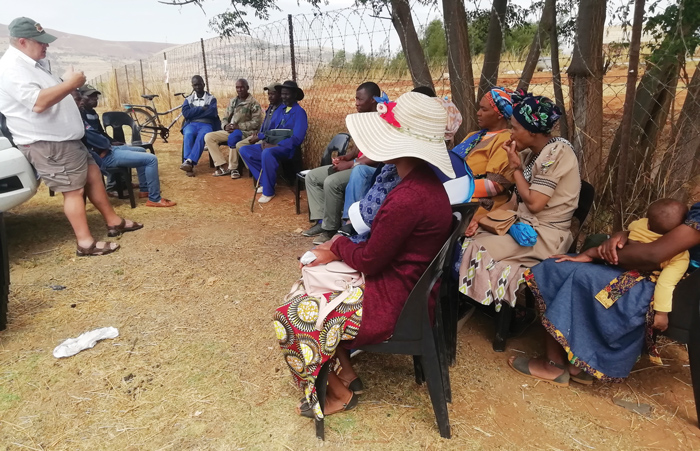
During one of the 81 study group sessions that took place during September, Graeme Engelbrecht, provincial coordinator from the Dundee office, shared his knowledge with farmers from the Ngoba study group.
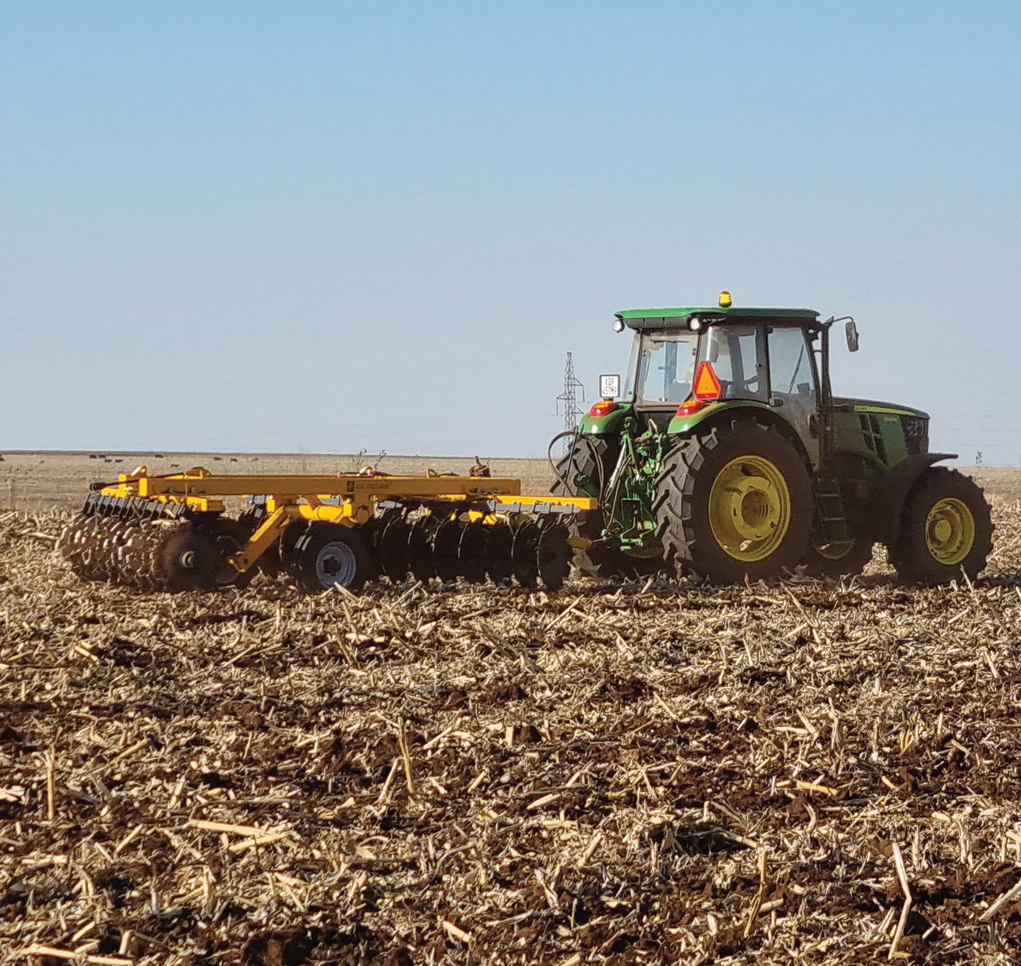
David Nhlapo of Sgegede farms recently met with Jurie Mentz to join Grain SA. His dad sadly passed away and he is eager to pick up the baton and learn to do things correctly. David is a proactive farmer who shows great potential. He wants to plant maize and soybeans and had already got a soil analysis and started his primary tillage timeously.
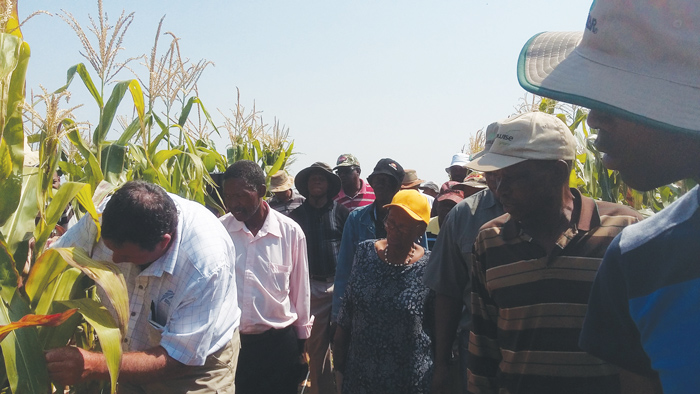
Du Toit (Thabo) van der Westhuizen, provincial coordinator in North West, checks on crop progress on one of the farms in his area.
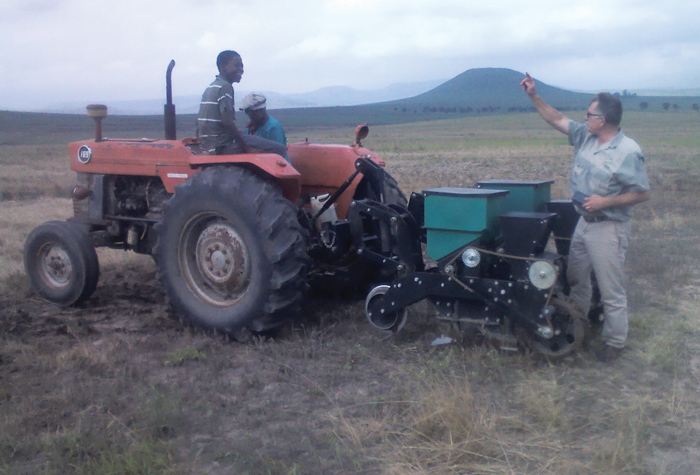
Louwsburg provincial coordinator, Jurie Mentz monitors the planting of maize in his service area.
During farm visits and study group sessions the importance of farm maintenance is discussed. Some of these are essentially post-harvest tidy up activities, but it is also important to service the tractors and machinery for the new season. Recently one of the mentors’ trained eye noticed that the bolts had not been tightened properly on a disc about to start preparations. The farm workers quickly tightened them and a potentially costly stoppage was avoided. Fencing and watering points all need to be checked and maintained now.
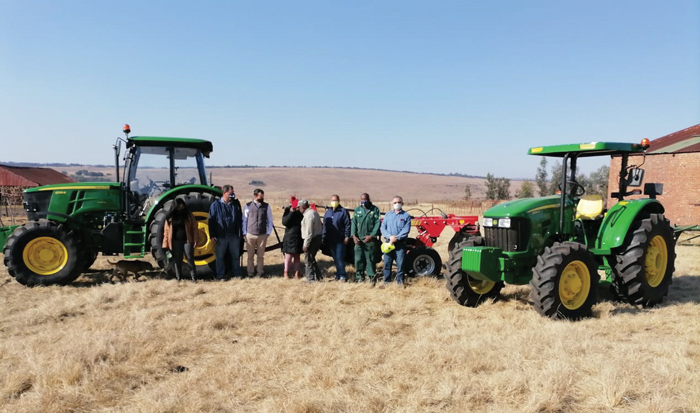
As a participant in the stimulus package project of the DRDLR, Ntombizethu Dorcas Shongwe of Smutsoog Farm in Mpumalanga received new tractors and equipment. Grain SA team members demonstrated the calibration of planter and boom sprayers for the farm workers.
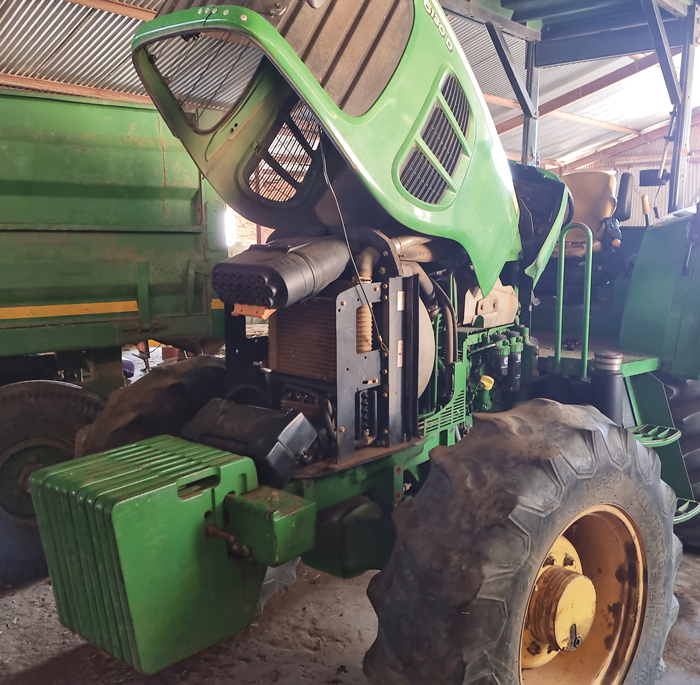
John Mabasa was doing maintenance and servicing tractors and implements pre-planting when the team paid him a visit.
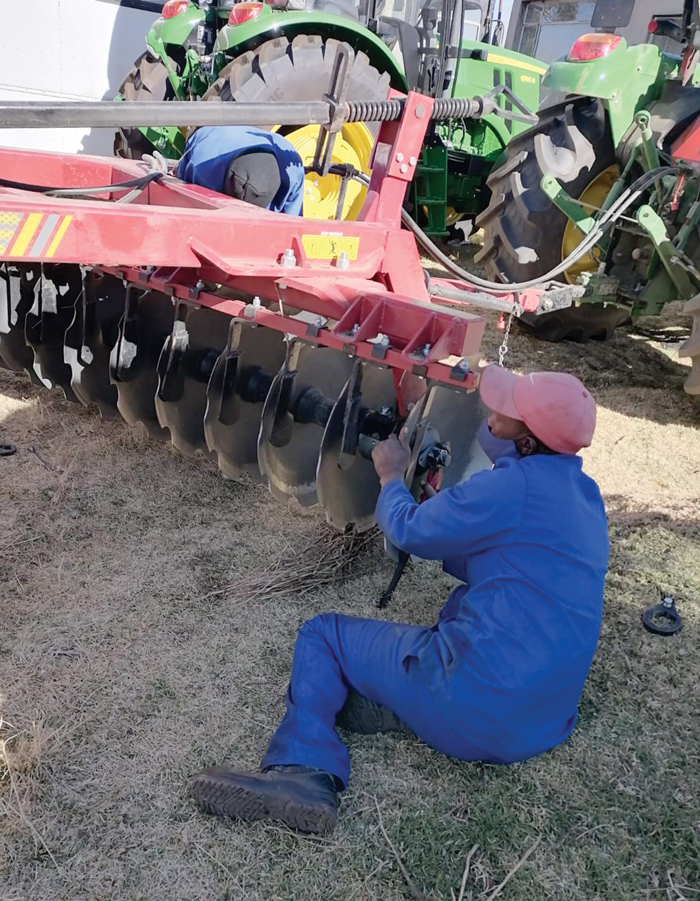
During a visit to Smutsoog Farm, the importance of maintenance was also discussed. The farmers and workers were taught how to look after their equipment. Here farm workers are checking that there are no loose nuts and bolts.
Grain SA’s Grow for Gold National Yield Competition is a platform where grain producers compete to see who achieves highest yields. The competition is for maize, wheat, sunflower and soybean producers.
Jurie Mentz, the development coordinator from Louwsburg regional office, is proudly celebrating the success of a new era commercial farmer and member of Donkerhoek study group, Bheki Mabuza who farms near Amersfoort in Mpumalanga. Bheki achieved top yields of 14,7167 t/ha which saw him a top 3 finalist in the Eastern Highveld region.
The Mabuza’s have participated in Grain SA’s programme for ten years. Previously a taxi owner, Bheki decided to leave that industry to rather farm full time. Their farming operation has grown significantly thanks to hard work and wise investments. He has been proactive about learning as much as possible about the land and the crops they grow. The Mabuza’s have expanded from 2 hectares to 30 hectares to 110 hectares – and there are many more plans for the future.
Jurie says a key ingredient to the Mabuza’s success is a thirst for knowledge that causes them to read a lot and ask questions all the time. Bheki has focussed on getting his soils balanced with excellent liming and fertilisation practices. Regular soil sampling is done and problems are identified and rectified. Jurie also says the fields are always prepared in good time.
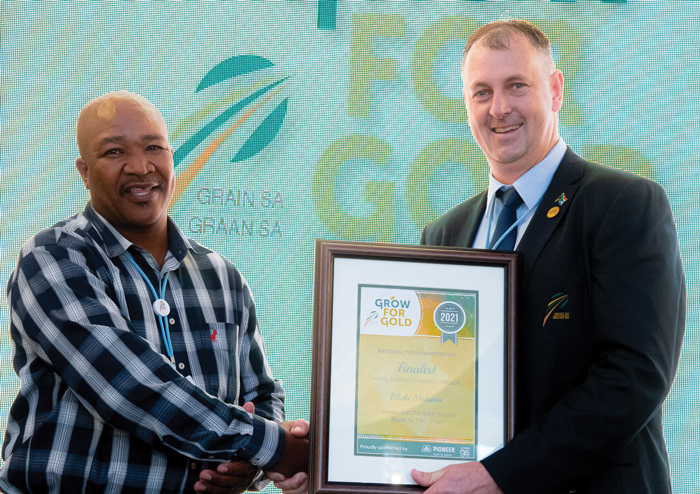
Bheki Mbuza came third in his category in the Grow for Gold competition, competing against commercial farmers – a huge achievement!
Publication: December 2021
Section: Pula/Imvula